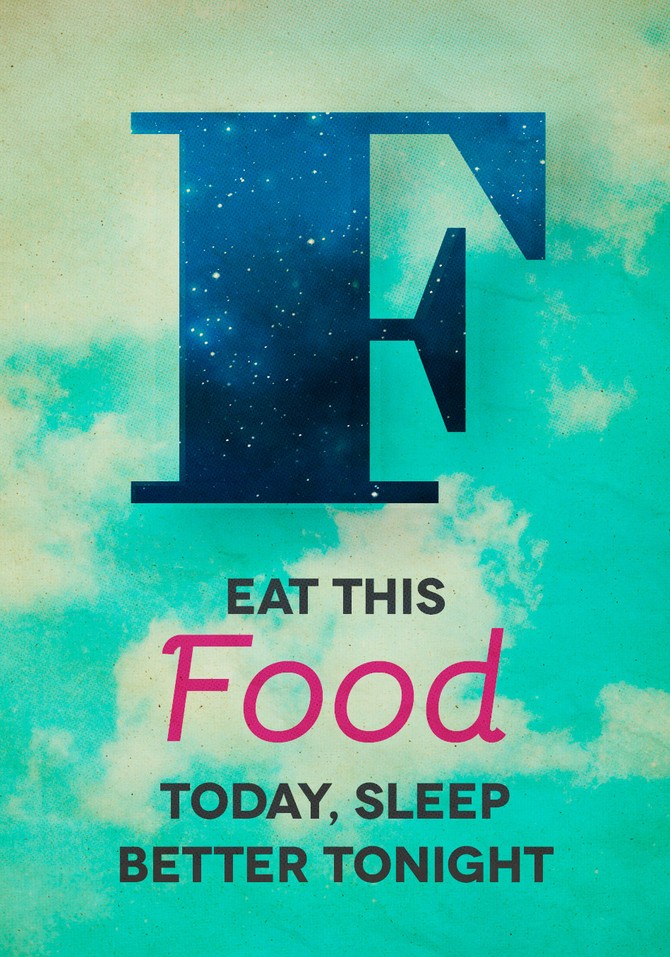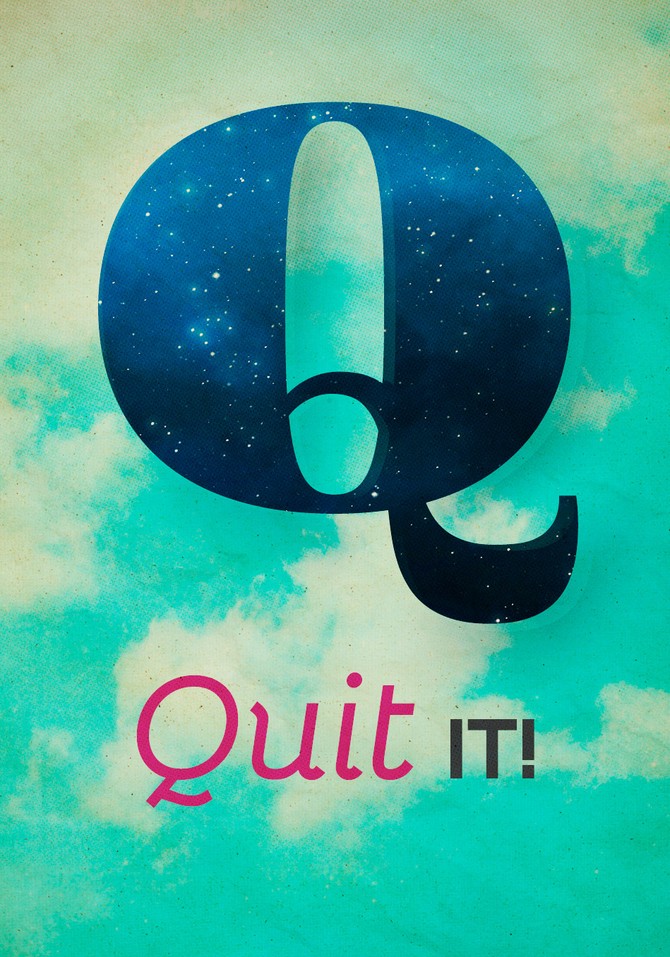26 Ways to Sleep Better
Whether you can't fall asleep, stay asleep or find time to sleep, we're here to help—with an alphabet's worth of solutions for a deeper, more refreshing slumber, starting tonight.
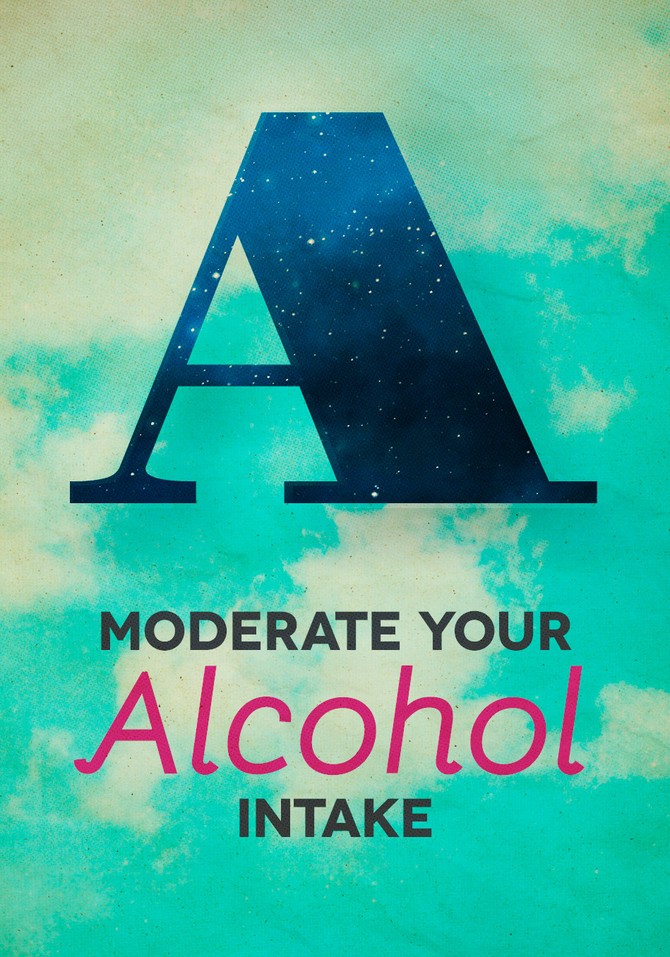
A nightcap might make you drowsy, but it probably won't improve your sleep. Alcohol is an anesthetic that depresses your central nervous system, says Rafael Pelayo, MD, a clinical professor at Stanford's sleep center. As the sedative wears off, you're more likely to wake up in the middle of the night and then sleep fitfully. A small 2011 study found that when participants went to bed drunk (for some that is having the equivalent of three drinks in an hour), they had less REM sleep. They also woke frequently during the night, an effect that was more pronounced in women than in men. Since it takes at least an hour for your body to metabolize a standard drink, Pelayo suggests waiting one hour per drink before heading to bed. "Going to sleep sober is a healthier choice than nodding off with a buzz," Pelayo says. "You might sleep less, but the sleep you get will be far better."
—Christie Aschwanden
4 ways alcohol messes with your sleep
—Christie Aschwanden
4 ways alcohol messes with your sleep
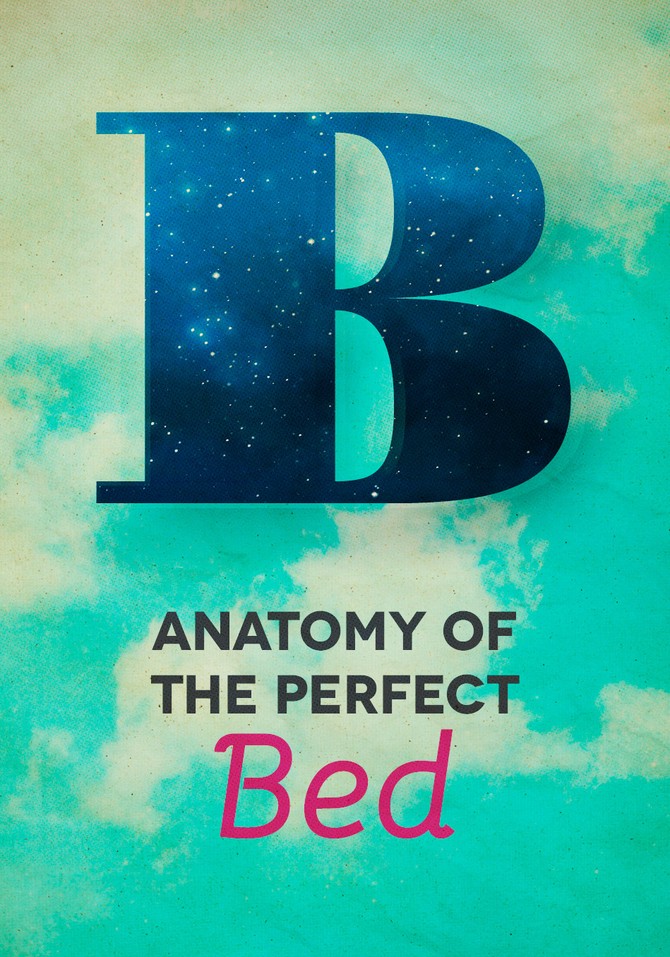
Roughly 70 percent of people in an industry survey said they thought a new mattress would lead to better sleep—but it's not just the mattress that matters. We asked insiders from a few hotels (the authorities on superb sleeping experiences) how to bring vacation-sleep home.
—Rebecca Webber
How to create the most comfortable bed you'll ever sleep on
—Rebecca Webber
How to create the most comfortable bed you'll ever sleep on
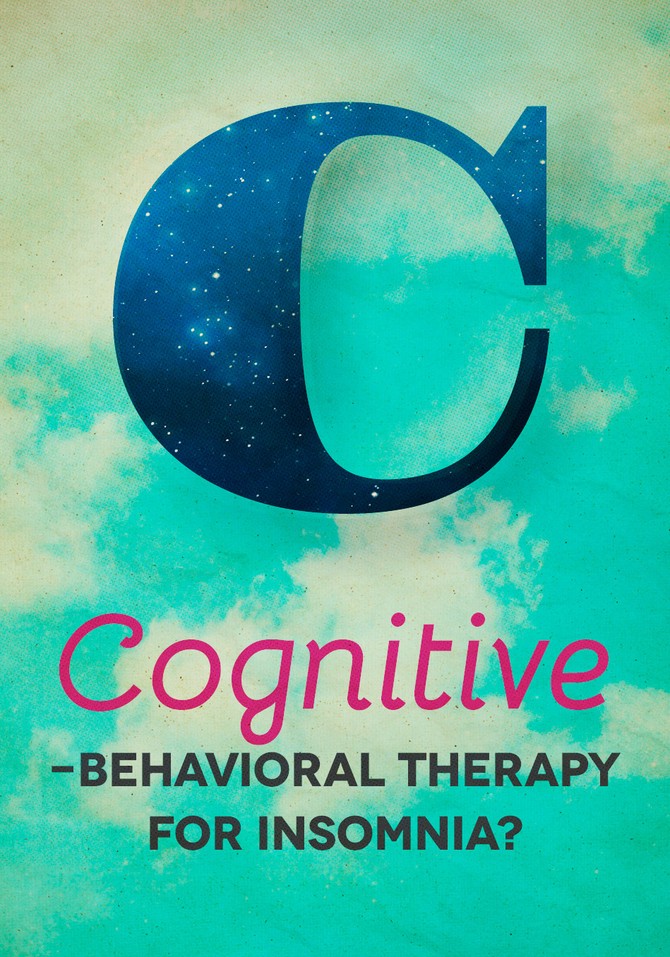
The best-kept secret in sleep medicine isn't some wonder drug, but a pill-free treatment called cognitive-behavioral therapy for insomnia (CBT-I), which targets the thoughts and behaviors that screw up your slumber (the panicky feeling of being wide awake at 3 A.M., the hours of tossing and turning). According to recent research, CBT-I can be stunningly effective—after at least three sessions, 86 percent of insomniacs showed significant improvement in their sleep. However, there's one big challenge: About 60 million Americans suffer from insomnia, but there are only a few hundred CBT-I practitioners.
To help bridge the gap, a new app called SleepRate delivers the therapy to your iPhone. The app works with a heart rate monitor, logging your heartbeats as you sleep, while your phone records ambient sounds, such as a snoring spouse or barking dogs. Once the app collects data for five nights of a nine-night stretch, it generates a personalized plan based on science from Stanford University. The suggestions, which can take up to eight weeks to fully implement, might surprise you. If you normally go to bed by 9, for instance, "we could recommend that you don't get into bed until two to three hours later," says Britney Blair, who is board certified in behavioral sleep medicine. "If you have trouble falling asleep, we want you to get in bed only when you're good and sleepy. When patients feel their sleep improving, I often get an 'Oh, my God!' response because they can't believe it's actually working." (SleepRate.com, $100)
—Rebecca Webber
To help bridge the gap, a new app called SleepRate delivers the therapy to your iPhone. The app works with a heart rate monitor, logging your heartbeats as you sleep, while your phone records ambient sounds, such as a snoring spouse or barking dogs. Once the app collects data for five nights of a nine-night stretch, it generates a personalized plan based on science from Stanford University. The suggestions, which can take up to eight weeks to fully implement, might surprise you. If you normally go to bed by 9, for instance, "we could recommend that you don't get into bed until two to three hours later," says Britney Blair, who is board certified in behavioral sleep medicine. "If you have trouble falling asleep, we want you to get in bed only when you're good and sleepy. When patients feel their sleep improving, I often get an 'Oh, my God!' response because they can't believe it's actually working." (SleepRate.com, $100)
—Rebecca Webber

During REM sleep, your subconscious puts on a fantastic show—but the plot can be tough to follow. (Why were you on a trampoline in Indonesia?) "A central function of dreams is to allow us access to thoughts and feelings we may not be aware of," says Mark Smaller, PhD, president of the American Psychoanalytic Association. We asked Smaller to explain the dream-deciphering process. Just grab a pencil and take a dip into your subconscious.
How to figure out what your dreams really mean
How to figure out what your dreams really mean
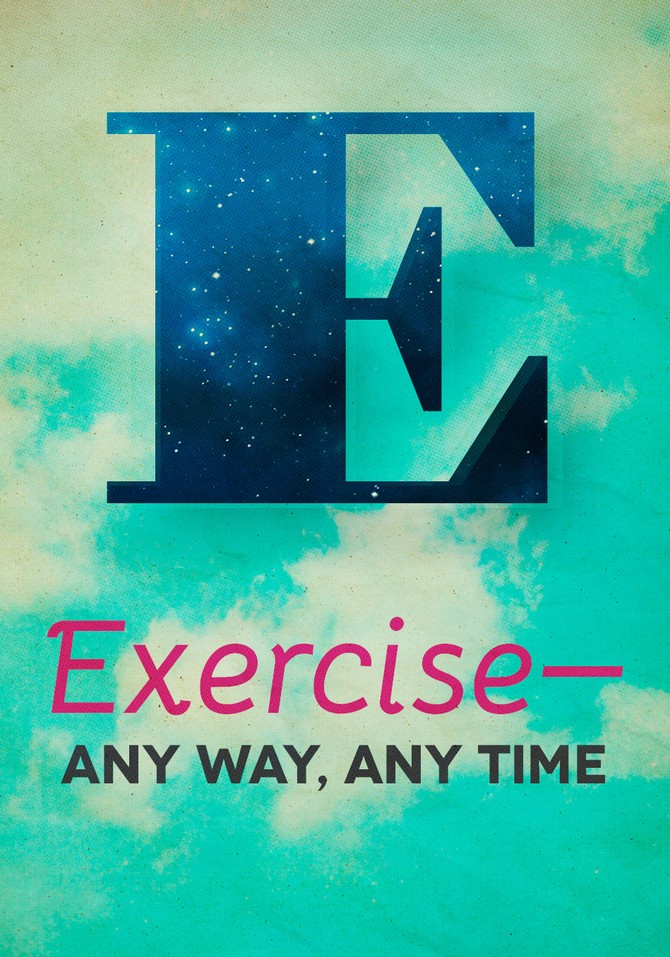
For years we've been told that exercise improves sleep unless you work out close to bedtime, in which case it can have the opposite effect. But according to recent research, fitness can be great whenever. We asked Kelly Glazer Baron, PhD, an assistant professor of neurology at Northwestern University, to explain.
Q: I can really exercise any time of day?
A: When insomniacs did 30 minutes of exercise as late as 7 p.m. three times per week, we found that it actually improved their sleep. A separate poll also found that working out within four hours of bedtime won't keep most people up.
Q: So will it cure my insomnia?
A: The subjects in our experiment slept 45 minutes longer and reported having higher-quality sleep. But more research needs to be done to determine how much exercise is needed to maintain those effects.
Q: When can i expect to see results?
A: In about two to four months. We don't know why it takes that long; it could be due to improvements in mood, which take time to have a lasting effect on your sleep patterns.
—Jessica Migala
Exercising before bed will keep you awake, plus more sleep myths
Q: I can really exercise any time of day?
A: When insomniacs did 30 minutes of exercise as late as 7 p.m. three times per week, we found that it actually improved their sleep. A separate poll also found that working out within four hours of bedtime won't keep most people up.
Q: So will it cure my insomnia?
A: The subjects in our experiment slept 45 minutes longer and reported having higher-quality sleep. But more research needs to be done to determine how much exercise is needed to maintain those effects.
Q: When can i expect to see results?
A: In about two to four months. We don't know why it takes that long; it could be due to improvements in mood, which take time to have a lasting effect on your sleep patterns.
—Jessica Migala
Exercising before bed will keep you awake, plus more sleep myths
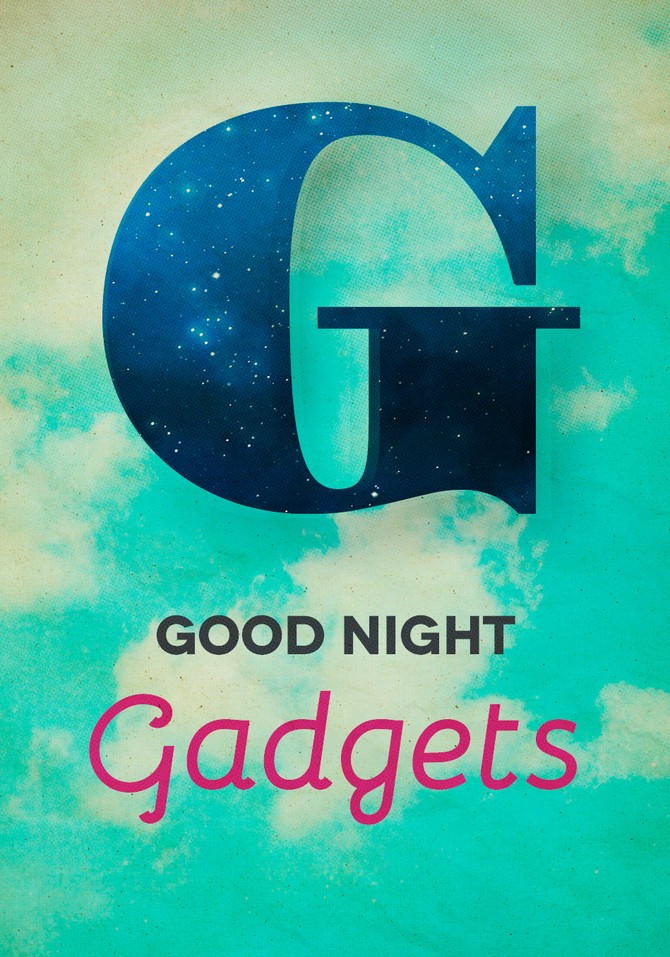
Three sleep-deprived O editors test-snoozed a few devices that promise to help you feel more rested.
We tested them! Gadgets that can help you sleep
We tested them! Gadgets that can help you sleep
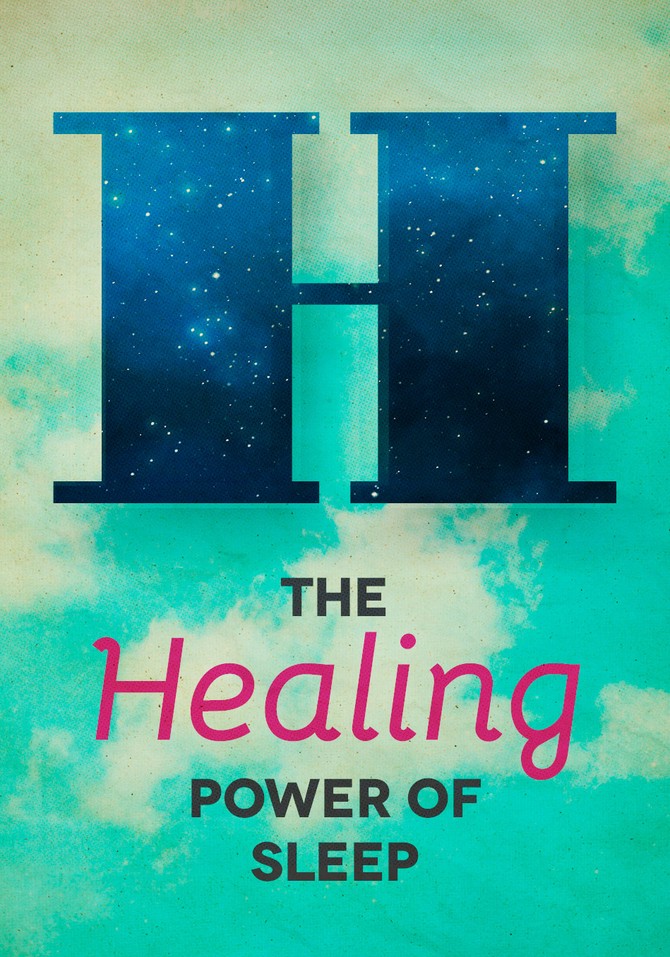
Sharper Memory
When you're awake, your brain naturally builds up beta-amyloid (proteins that are a strong biomarker for Alzheimer's disease), but while you sleep, the brain flushes out some of those toxins. According to a recent study, older adults who reported regularly getting adequate rest had fewer beta-amyloid deposits in their brains than those who got less sleep.
Stronger Heart
A study of more than 30,000 adults found that those who slept for roughly seven hours were far less likely to develop heart disease than those who averaged only five hours. Skimping on sleep may disrupt your hormones and metabolism, and increase blood pressure and inflammation.
Slimmer Waistline
Brain scans in healthy adults reveal that a good night's sleep impacts areas of the brain that regulate your desire for high-calorie foods, according to 2013 research in Nature Communications. When presented with food options, study subjects wanted treats containing an average of 600 fewer calories when they were well rested compared with when they were sleepy.
—Jessica Migala
The 7 most convincing reasons to get 7 hours of sleep
When you're awake, your brain naturally builds up beta-amyloid (proteins that are a strong biomarker for Alzheimer's disease), but while you sleep, the brain flushes out some of those toxins. According to a recent study, older adults who reported regularly getting adequate rest had fewer beta-amyloid deposits in their brains than those who got less sleep.
Stronger Heart
A study of more than 30,000 adults found that those who slept for roughly seven hours were far less likely to develop heart disease than those who averaged only five hours. Skimping on sleep may disrupt your hormones and metabolism, and increase blood pressure and inflammation.
Slimmer Waistline
Brain scans in healthy adults reveal that a good night's sleep impacts areas of the brain that regulate your desire for high-calorie foods, according to 2013 research in Nature Communications. When presented with food options, study subjects wanted treats containing an average of 600 fewer calories when they were well rested compared with when they were sleepy.
—Jessica Migala
The 7 most convincing reasons to get 7 hours of sleep

Telling yourself you got a good night's rest may make a difference in how you think and feel: In a study in the Journal of Experimental Psychology, scientists told one group of subjects that they had logged an above-average amount of REM sleep, while a second group was told they didn't get enough. Then everyone was given a test that measured their cognitive function. The above-average sleepers performed better than those told they'd slept poorly. "Simply hearing that you had high-quality sleep may trigger automatic responses, like heightened energy, that your brain has come to associate with being well rested," says study coauthor Kristi Erdal, PhD.
—Jessica Migala
—Jessica Migala

Tired of feeling like a zombie the first few days in a new time zone? Entrain, a recently launched app developed by mathematicians at the University of Michigan, can help speed up the recovery process. The free app focuses on light, the most important factor when it comes to resetting your circadian clock. "When people travel, they often want to immediately shift their sleep schedule to the new time zone, but for some trips, that can actually make things worse," says Olivia Walch, one of the app's creators. "You can adjust fastest by exposing yourself to light at times of day that aren't always intuitive. We may, for example, recommend staying in the dark until 10 a.m., even if you wake up at 6. When curing jet lag, sleep matters, but light matters more."
—Arianna Davis
—Arianna Davis
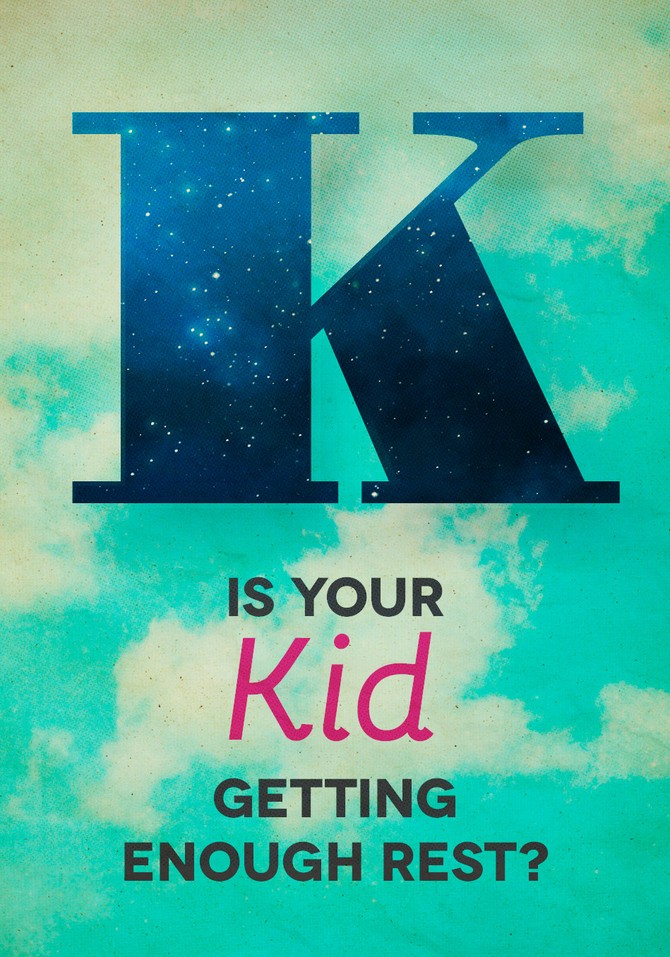
By the time children reach adolescence, they may begin sleeping less—but homework isn't the only culprit. In a recent poll, 16 percent of kids said they woke up to send or read texts and e-mails. Compare your child's sleep habits with the stats:
Age: 6-11
Hours of sleep most kids are getting: 9 or more
Hours of sleep they need: 10-11
Age: 12-14
Hours of sleep most kids are getting: 8
Hours of sleep they need: 9-10
Age: 15-17
Hours of sleep most kids are getting: 7 or less
Hours of sleep they need: 9-10
Age: 6-11
Hours of sleep most kids are getting: 9 or more
Hours of sleep they need: 10-11
Age: 12-14
Hours of sleep most kids are getting: 8
Hours of sleep they need: 9-10
Age: 15-17
Hours of sleep most kids are getting: 7 or less
Hours of sleep they need: 9-10

Before you hit the sack, cue up a soothing playlist. Research in the International Journal of Nursing Studies found that when insomniacs listened to relaxing music for 45 minutes prior to bedtime, they spent more time in REM sleep.
—Jihan Thompson
—Jihan Thompson
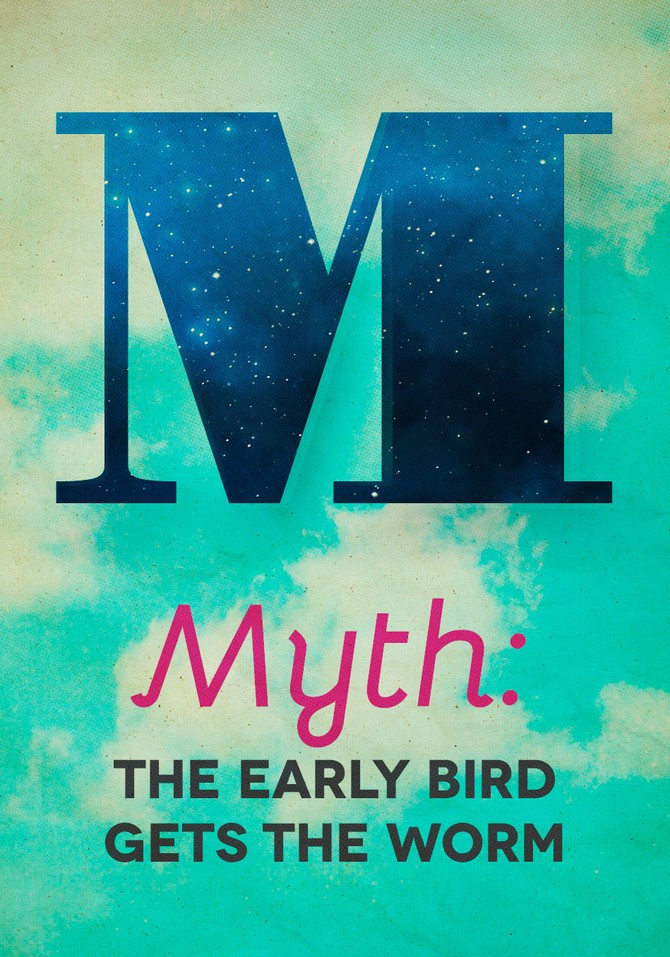
At least, not always. When you rise before dawn to finish a last-minute task, you may be more likely to experience microsleeps—temporary moments of nodding off that can last up to 30 seconds. "Your body follows its own circadian rhythms and wants to keep sleeping," says Michael Twery, PhD, a sleep expert at the National Institutes of Health. Try to complete your work before you turn in (even if it's past your normal bedtime). And if possible, Twery advises, plan ahead for the lost sleep with a nap during the day.
—Ashley Williams
Signs your body is too tired to go on (even if you're not)
—Ashley Williams
Signs your body is too tired to go on (even if you're not)
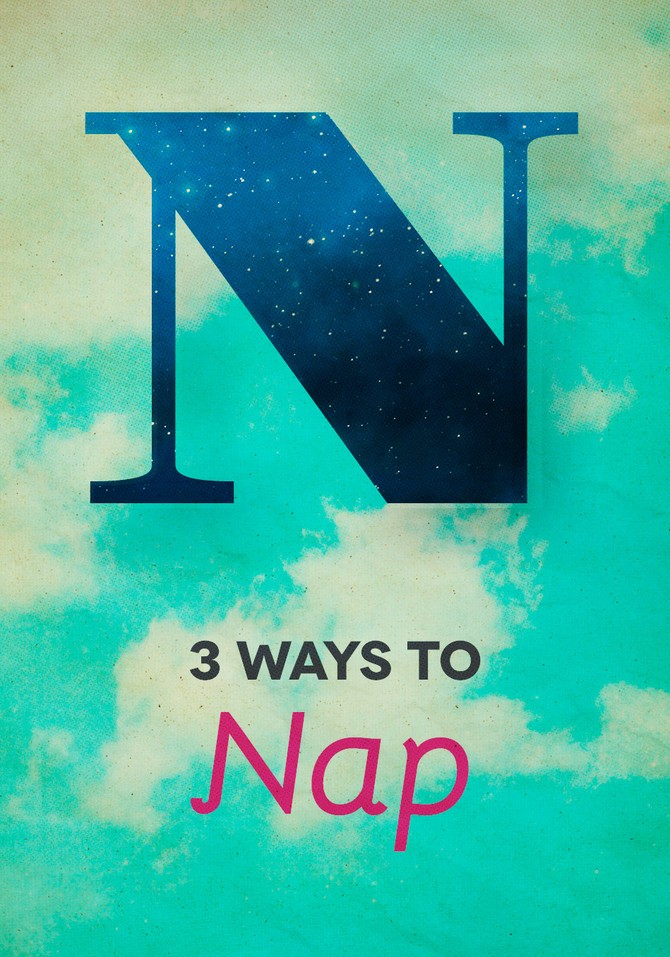
Try these three strategies to get the most benefit from your mid-day doze.
The 3 kinds of naps everybody needs to know about
The 3 kinds of naps everybody needs to know about
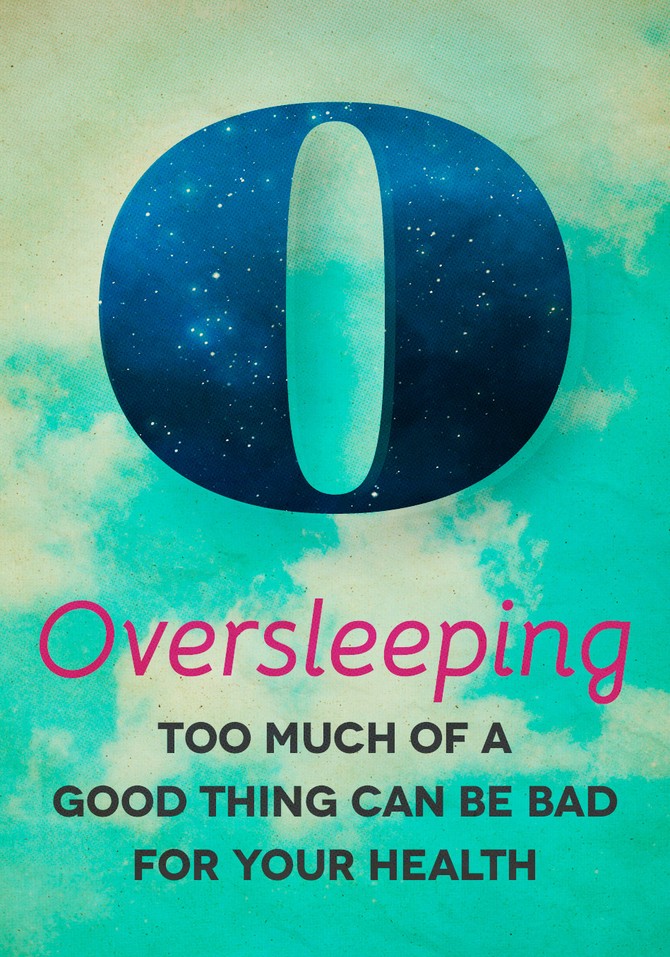
If you're regularly snoozing nine hours or more per night, you may be putting yourself at risk for more than a few illnesses, including diabetes and heart disease. Cognitively, you're not at the top of your game, either. According to a 2014 report from the Harvard-based Nurses' Health Study, women who slept nine hours or more performed worse on cognitive and memory tests than women who averaged seven hours of sleep nightly. Lead researcher Elizabeth Devore suspects that the brains of those who slept longer were aging faster because those women were disrupting their body's natural circadian rhythm. Her advice: "Don't kick this problem down the road. As early as midlife, sleep habits can predict future memory problems. Create a routine: Go to bed at the same time every night and force yourself to get up at an appropriate time, even if you're still a little tired."
—Kathryn Wallace
Why hitting the snooze button can screw up your entire day
—Kathryn Wallace
Why hitting the snooze button can screw up your entire day
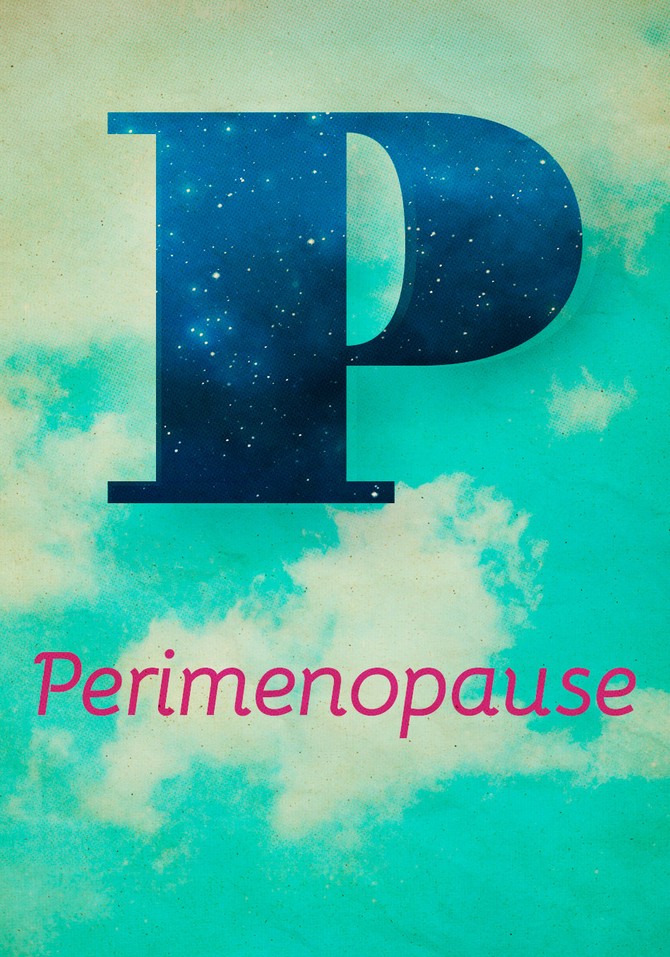
During the transition into menopause, sleep is often one of the first things to go as levels of estrogen and progesterone begin to decline. And some women complain that their sleep troubles linger for years after. These solutions can help you wake up on the right side of the bed.
The real reason women can't sleep (and what to do about it)
The real reason women can't sleep (and what to do about it)

"I use a red bulb in my bedroom lamp because the light is less likely to suppress melatonin and keep me up. And if I have to turn it on in the middle of the night to go to the bathroom, it won't disrupt my sleep pattern."
—Louise M. O'Brien, PhD, Associate Professor at The University of Michigan Sleep Disorders Center
The sneaky ways that blue light affects your health
—Louise M. O'Brien, PhD, Associate Professor at The University of Michigan Sleep Disorders Center
The sneaky ways that blue light affects your health
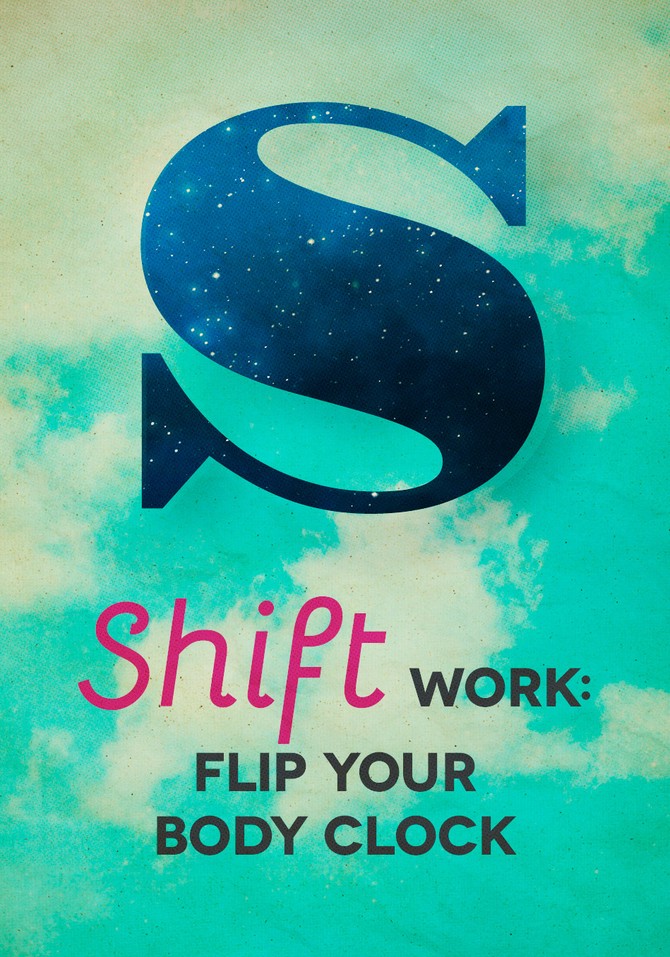
It's hard enough to get sufficient rest when you're holding down a 9-to-5 job. It's even trickier when you're one of the more than 15 million Americans who clock in as the rest of us zonk out. But research suggests that with a little planning, night-shift workers can get plenty of shut-eye. "Within about a week, permanent night-shift workers can reset their body clock so they feel sleepy at the right time of their day," says Charmane Eastman, PhD, a professor and researcher at the Biological Rhythms Research Lab at Chicago's Rush University Medical Center, who has been studying how to help shift workers for almost three decades. Eastman has shared a sample workday plan. Adapt it to fit your schedule and body's response.
—Ashley Williams
The best sleep schedule for people who work nights
—Ashley Williams
The best sleep schedule for people who work nights
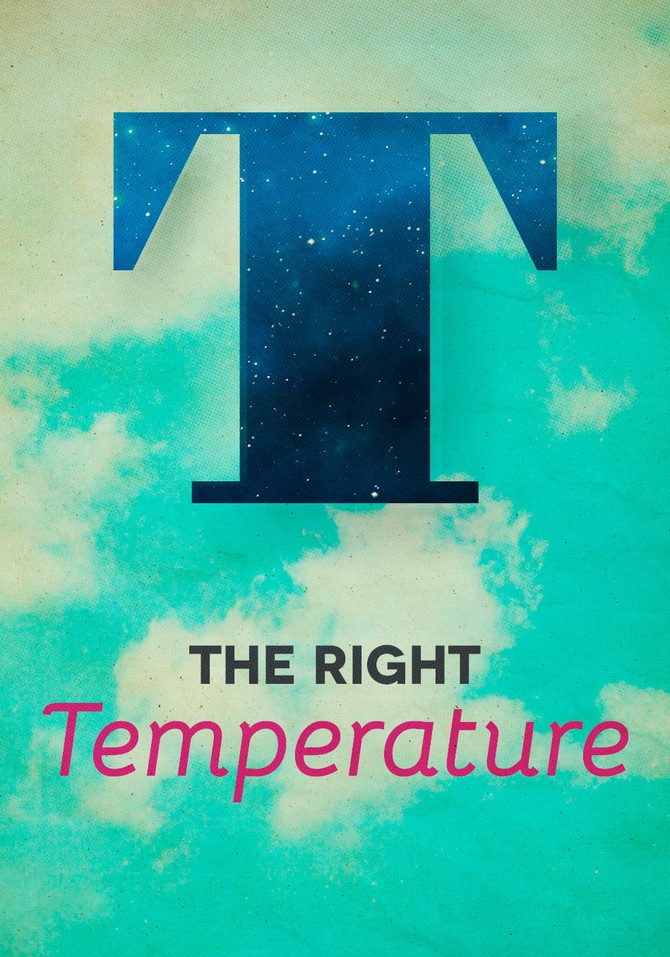
In one of the first studies to examine how room temperature impacts people with sleep apnea—a condition that affects an estimated 18 million or more Americans—researchers discovered that when the thermostat was set at 61 degrees instead of 75, subjects slept on average 30 minutes longer and reported feeling significantly more alert the next morning.
—Jihan Thompson
—Jihan Thompson
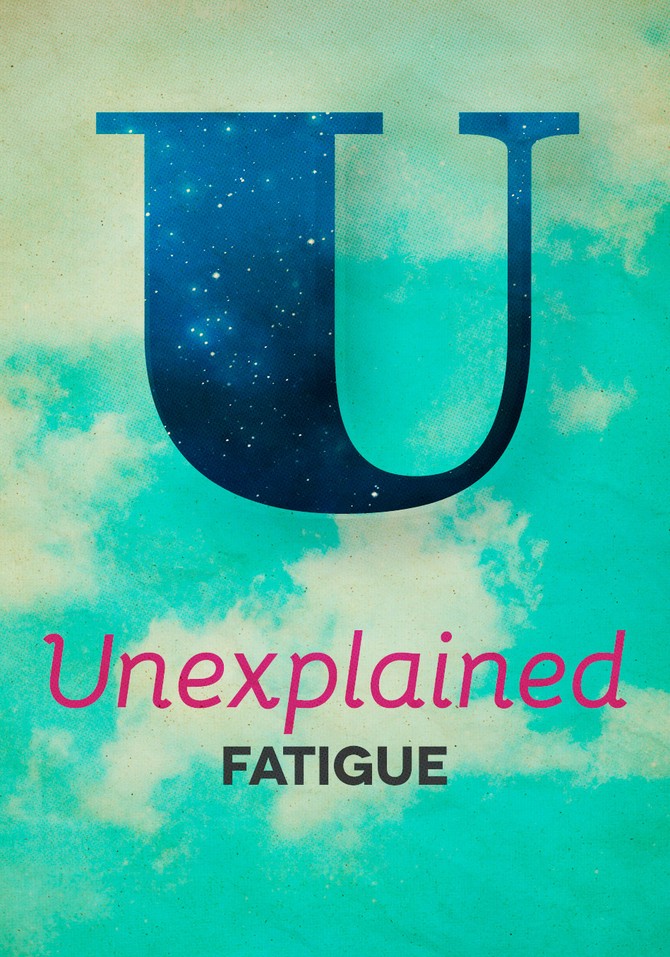
Exhaustion can be a sign that you're not just sleepy, you may be sick. If nothing helps you feel rested, one of these conditions may be to blame.
Anemia
A telltale sign of iron deficiency (the number one nutritional deficiency in the world) is fatigue, caused by a lack of red blood cells. If you're anemic, your doctor may suggest dietary changes, like loading up on iron-rich meats and veggies.
Diabetes
When your body is no longer able to effectively convert glucose into energy, you can eventually feel weak and wiped out.
Fibromyalgia
More than 75 percent of people who suffer from this disorder, which causes widespread muscle pain, report having trouble sleeping. Why? According to some brain wave studies, the disease may cut off time spent in stages III and IV of sleep, when the most restorative rest occurs.
—Jihan Thompson
Surprising reasons you're still tired
Anemia
A telltale sign of iron deficiency (the number one nutritional deficiency in the world) is fatigue, caused by a lack of red blood cells. If you're anemic, your doctor may suggest dietary changes, like loading up on iron-rich meats and veggies.
Diabetes
When your body is no longer able to effectively convert glucose into energy, you can eventually feel weak and wiped out.
Fibromyalgia
More than 75 percent of people who suffer from this disorder, which causes widespread muscle pain, report having trouble sleeping. Why? According to some brain wave studies, the disease may cut off time spent in stages III and IV of sleep, when the most restorative rest occurs.
—Jihan Thompson
Surprising reasons you're still tired

According to a 2013 report in Sleep Medicine Reviews, emerging data suggest that people with chronically low D levels may be more likely to suffer from sleep apnea and complain of daytime sleepiness. You can get a boost with ten to 15 minutes of direct sun exposure three times a week.
—Jihan Thompson
The vitamin D test and 4 more essential blood tests for women
—Jihan Thompson
The vitamin D test and 4 more essential blood tests for women

An estimated 43 percent of adults say stressful thoughts keep them up at night, according to a recent poll by the American Psychological Association. If that sounds like you, try keeping a notebook by your bedside, advises Frisca Yan-Go, MD, a clinical neurologist at the UCLA Sleep Disorders Center. When the wheels start spinning—did you remember to pay the water bill? are you ready for that meeting? what did your daughter mean by that comment at dinner?—just write down your concerns. When you articulate those persistent thoughts, you can usually clear your mind of them, says Yan-Go, and, as a result, rest peacefully.
—Arianna Davis.
—Arianna Davis.
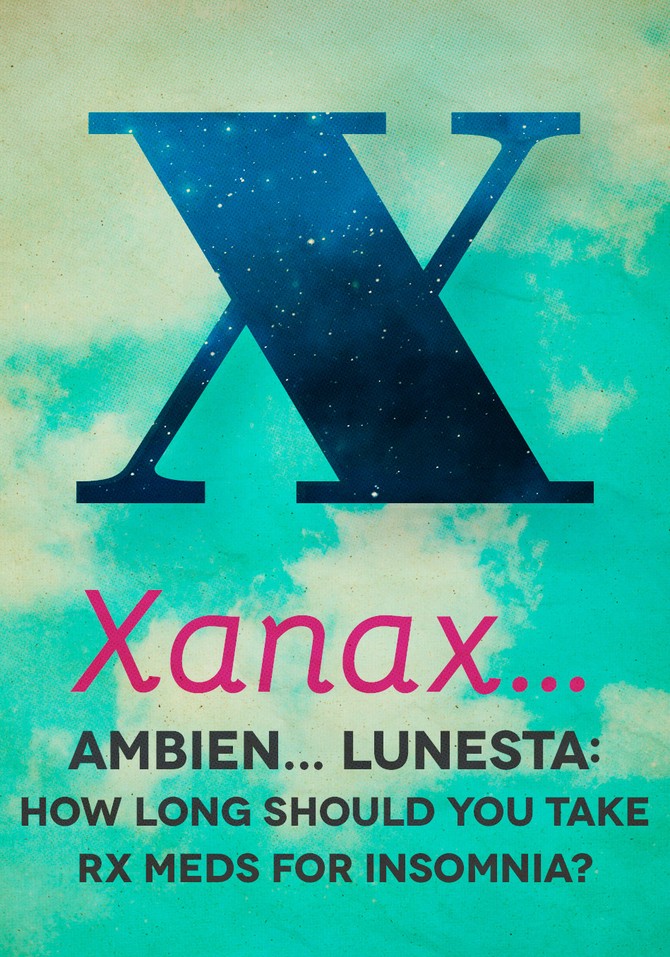
"Though some sleep medications are approved for continuous use for up to one year, most specialists draw the line between acute and chronic insomnia at about the three-month mark," says Ilene Rosen, MD, program director of the Penn Sleep Fellowship at the University of Pennsylvania. "If something stressful or exciting has you so wound up that you temporarily can't sleep, medication can help. But if you have trouble sleeping for more than three months, it usually means that something else is wrong, and a prescription won't address the underlying problem. Cognitive-behavioral therapy is often a better choice. It may take longer to work, but has been shown to offer lasting relief."
—Jihan Thompson
—Jihan Thompson
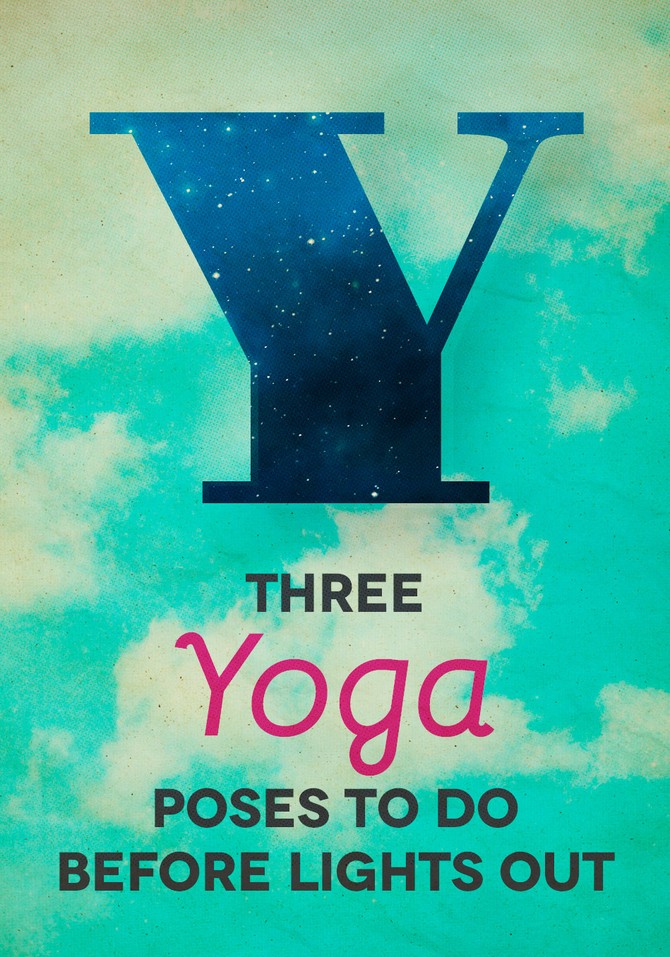
Edward Vilga, a yogi with 30 years' experience and the author of Yoga in Bed, shares three of the best moves you can do to relieve workday tension and ease into a peaceful night's sleep.
3 yoga poses that can improve your sleep
3 yoga poses that can improve your sleep
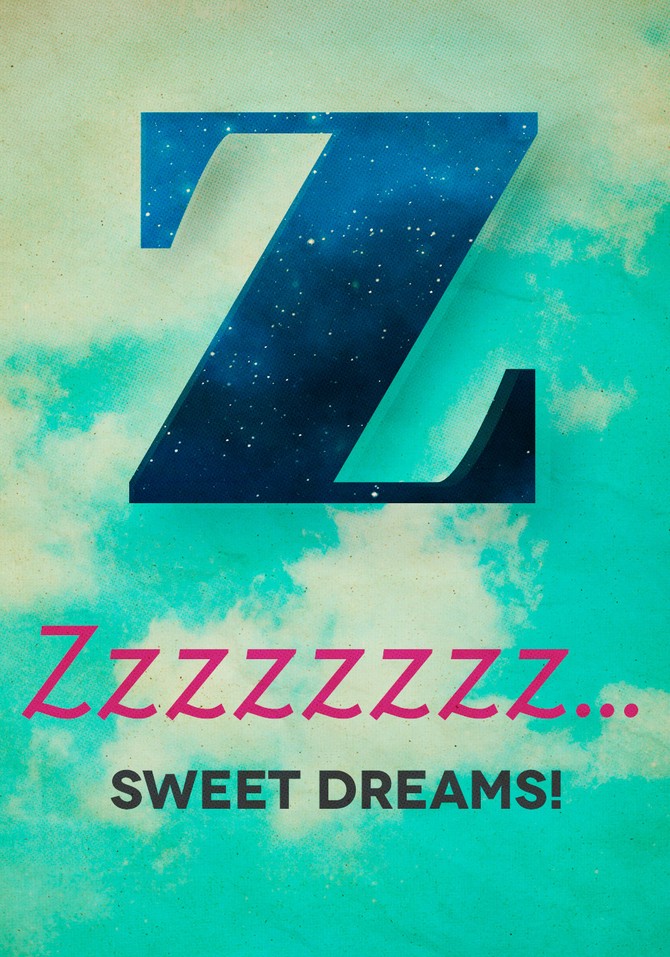
From the September 2014 issue of O, The Oprah Magazine

